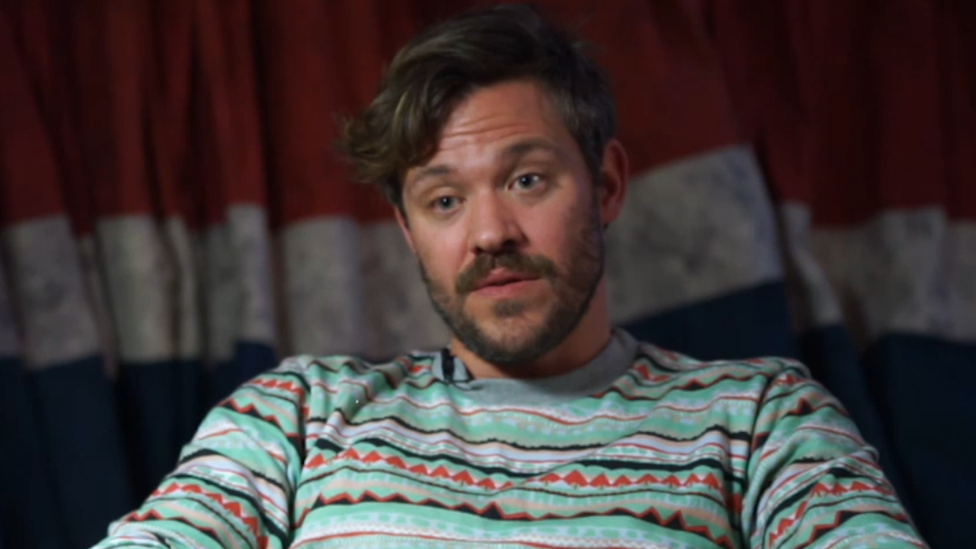Will Young: Performing 'probably saved my life' after PTSD
- Published

Will Young said his life 'slowly began to unravel' after his 2011 album Echoes
Singer Will Young has spoken about how performing on stage "probably saved my life" after he suffered post traumatic stress disorder (PTSD).
He told TV station London Live, external his connection with his fans was "spiritual" and "beautiful" and "pulled me through having PTSD, definitely".
The star was speaking before he quit BBC One's Strictly Come Dancing, citing unspecified "personal reasons".
He said he developed PTSD after he began performing in Cabaret in 2012.
He did not reveal if he had suffered a specific trauma, but has previously spoken, external about how it was a culmination of years of hiding his homosexuality, being bullied at primary school and being separated from his twin brother at birth.

Will Young announced his exit from Strictly Come Dancing on Tuesday
Young spoke about his PTSD during the interview, which was recorded on 9 August but only broadcast for the first time on Wednesday.
"PTSD is a thing I learned about because I got it, I had a breakdown, after my fifth album, called Echoes," he told London Live's London Real programme.
"It was kind of the album I always wanted to do, and then I moved into this perfect house, and my life was perfect, and I was like, 'This could be pictured in Wallpaper magazine.'
"I was just at a loss, I had a number one album, top five single, and I thought 'Oh, this is not good, this is not going to be easy', and then just slowly began to unravel.
"Then I went into theatre, did Cabaret for the first time, and then I got PTSD and got depersonalisation and derealisation, which is when your body can't cope with the flooding of emotions from the past, so it shuts down.
"I couldn't see my face in the mirror, I couldn't recognise places or family or friends."
'I think you've got trauma'
Not long afterwards, Young said, he went into Khiron House, a trauma centre in London.
"At that stage, actually I diagnosed myself with the depersonalisation, but I was taking medication and so I thought it was the medication and then so many people get misdiagnosed for bipolar particularly when actually it is trauma," Young said.
"And then I'd gone to Khiron House, and luckily had incredible therapists. It was my therapist that said 'I think you've got trauma.' If it wasn't for her I think I'd probably be on a cocktail of medication and probably would've killed myself."
Young spoke about how being on stage had helped his recovery.
London Real presenter Brian Rose asked the singer what the essence of being a performer was and how it felt being on stage.
'Mass of energy'
Young replied: "I can only talk for myself but I think there's a huge need for affirmation that must be in there. A drive.
"There's a bit of a monster that, as soon as I walk on the stage, I'm like, 'Ahh, the applause is there,'" he added.
"I think you need that, it must be about wanting to voice something that couldn't be voiced.
"And then it becomes about communication, and because the communication is very pure, it can't help but tap in to something with other people, and then it comes this moulding mass of energy, and it can't be described.
"It's completely spiritual, and that is something that is beautiful, and I'd go as far as to say that probably saved my life. Knowing that authenticity. That has pulled me through having PTSD, definitely."
Will Young: Who I Am is on London Live's programme London Real on Friday at 20:00 BST.

Follow us on Twitter @BBCNewsEnts, external, on Instagram, external, or if you have a story suggestion email entertainment.news@bbc.co.uk, external.
- Published12 October 2016

- Published11 October 2016

- Published12 October 2016
